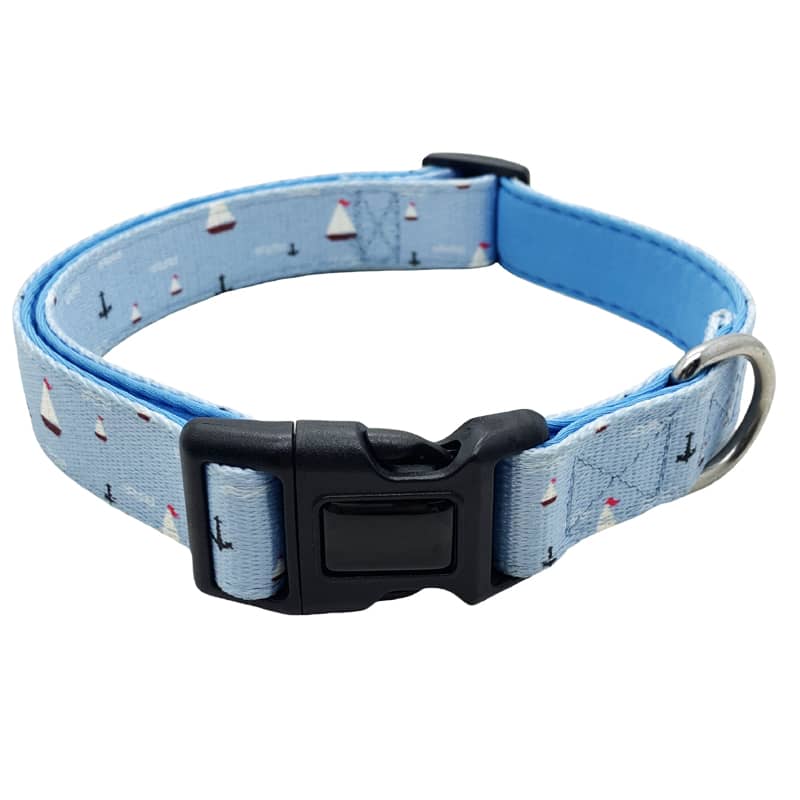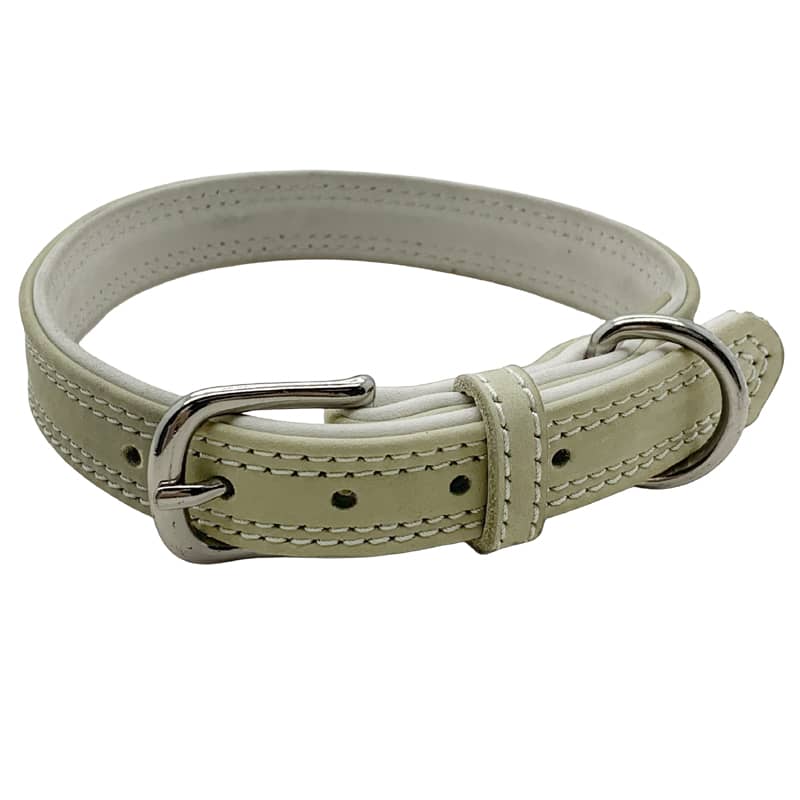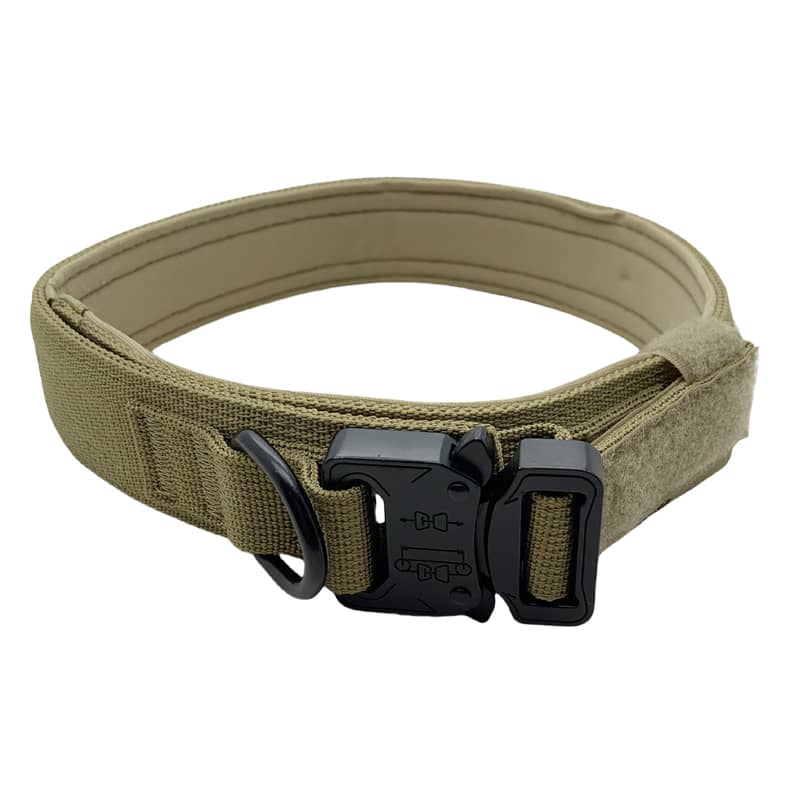
Pet owners today want products that are safe for their dogs and kind to the planet. That’s why materials like hemp and organic cotton are gaining traction for dog collars in 2025. These natural fibers offer eco-friendly alternatives to synthetic options like nylon, appealing to a growing number of environmentally conscious consumers. But which material is better for your pet product brand? This article explores hemp and organic cotton in detail, comparing their benefits and drawbacks to help you decide.
Authored by the team at Bestone Inc., a trusted name in pet product manufacturing, this guide provides valuable insights for brands looking to stay ahead in the sustainable pet market. Let’s dive in.
1. Introduction: Why Hemp and Organic Cotton Matter for Dog Collars
The Rise of Eco-Friendly Pet Products
In 2025, sustainability isn’t just a buzzword—it’s a priority. Pet owners are increasingly seeking products that align with their values, driving demand for eco-friendly materials. Hemp and organic cotton have emerged as top choices for dog collars due to their natural origins and minimal environmental impact. Unlike traditional materials, these options are biodegradable and free from harmful chemicals, making them safe for pets and the planet.
What Makes These Materials Special?
Hemp is a fast-growing plant that thrives with little water and no pesticides. It’s strong, durable, and even improves soil health as it grows. Organic cotton, grown without synthetic fertilizers or pesticides, offers a softer, breathable alternative that’s gentle on a dog’s skin. Both materials cater to the rising trend of pet wellness and sustainability, giving brands an edge in a competitive market.
Why It Matters for Brands
The pet industry is projected to hit $300 billion by 2030, with eco-friendly products leading the charge. Offering hemp or organic cotton dog collars can attract environmentally aware customers and boost your brand’s reputation. Whether you prioritize durability or affordability, understanding these materials is key to meeting consumer needs in 2025.
Learn more about sustainable pet supplies to see how these trends are shaping the industry.
2. Hemp vs. Organic Cotton: A Quick Comparison
A Snapshot of Key Differences
Before diving into the details, here’s a quick comparison of hemp and organic cotton across four critical factors: sustainability, durability, cost, and pet health.
| Feature | Hemp | Organic Cotton |
|---|---|---|
| Sustainability | ★★★★★ | ★★★★ |
| Durability | ★★★★★ | ★★★ |
| Cost | ★★ | ★★★★ |
| Pet Health | ★★★★★ | ★★★★ |
What This Means
Hemp stands out for its top-tier sustainability and durability, while organic cotton shines for affordability and comfort. Both are excellent for pet health, but hemp’s extra antibacterial properties give it a slight edge. This table offers a starting point—let’s explore each aspect further.
Choosing the Right Fit
Depending on your brand’s focus, one material might suit you better. If you’re targeting rugged, active dogs, hemp could be ideal. For budget-friendly, soft collars, organic cotton might win. Check out tips for choosing the right dog collar to refine your decision.
3. Environmental Impact: Which Material Wins for Sustainability?
Water Usage Showdown
Hemp is a water-saving champion, needing only 300-500 liters per kilogram of fiber. Organic cotton, while better than conventional cotton (which guzzles up to 20,000 liters per kilogram), still uses more water than hemp. This makes hemp a standout for brands aiming to reduce their environmental footprint.
Pesticides and Soil Health
Hemp grows pesticide-free thanks to its natural pest resistance, and it even regenerates soil as it grows. Organic cotton avoids synthetic chemicals too, but it’s less pest-resistant, potentially requiring more land. According to Gracie to the Rescue, “Hemp is grown pesticide-free since it has a natural pest resistance. Hemp plants require less water during the growing process, making it eco-friendly to produce.”
Carbon Footprint
Hemp absorbs 1.63 tons of CO2 per acre, making it carbon-negative. Organic cotton’s carbon impact is lower than conventional cotton’s, but it doesn’t match hemp’s sequestration power. Hemp’s fully biodegradable nature also prevents microplastic pollution, unlike synthetic fabrics.
Hemp production has a lower environmental footprint, requiring minimal pesticides and actually improving soil health.
4. Durability and Quality: What Holds Up Best for Active Dogs?
Hemp’s Toughness
Hemp fibers are up to three times stronger than cotton and boast an 8 times higher tensile strength. This durability makes hemp collars perfect for active dogs that tug or play hard. Some hemp fabrics can last up to 30 years, far outpacing cotton’s 10-year lifespan.
Organic Cotton’s Comfort
Organic cotton offers softer, immediate comfort and excellent breathability, reducing chafing for dogs. However, it wears out faster than hemp, especially if exposed to moisture or rough use. It’s a solid choice for calmer pets but less ideal for rugged adventures.
Practical Applications
For brands targeting outdoor enthusiasts, hemp’s long-lasting wear is a selling point. Organic cotton suits indoor or light-use collars. Learn more about the best materials for dog collars to match durability with your audience.
“Hemp is one of the strongest natural fibers available and gentle on the planet as well. Hemp is naturally antibacterial and naturally antimicrobial.” — The Good Dog Company
5. Pet Health and Safety: Benefits for Sensitive Pups
Hypoallergenic Advantages
Both hemp and organic cotton are hypoallergenic, reducing the risk of allergic reactions. This is a big win for dogs with sensitive skin or allergies, as these materials avoid the irritants found in synthetic fabrics.
Hemp’s Antibacterial Edge
Hemp goes further with its natural antibacterial, antimold, and odor-resistant properties. This keeps collars cleaner and safer for pets. The Good Dog Company notes, “Hemp is naturally antibacterial and naturally antimicrobial. It is hypoallergenic, which means it is a good choice for dogs with skin challenges since it resists mold and mildew.”
Comfort for All Dogs
Organic cotton’s softness makes it instantly comfortable, while hemp might feel stiffer at first but softens with use. Both prioritize pet safety—explore collar selection tips for sensitive pups.
Hemp is naturally hypoallergenic, antibacterial, antimold, and odor-resistant, making it ideal for pets with sensitive skin or allergy concerns.
6. Cost Breakdown: Balancing Price and Value
Hemp’s Premium Price
Hemp collars often cost more due to smaller production scales and sourcing challenges—sometimes up to 10 times more than cotton. However, its durability can offset this initial investment, offering long-term value for customers willing to pay a premium.
Organic Cotton’s Affordability
Organic cotton is more accessible and budget-friendly, making it easier to produce at scale. All Natural Dog Beds states, “Organic cotton production uses 85% less water than conventional cotton,” enhancing its cost-effectiveness while maintaining sustainability.
Value for Brands
Hemp’s higher price point can position your brand as premium, while organic cotton appeals to cost-conscious buyers.
7. Market Trends: Riding the Eco-Friendly Wave in the Coming Years
Sustainability Drives Demand
In the coming years, eco-friendly pet products are booming, especially among Gen Z pet owners. Searches for sustainable materials like hemp and organic cotton are climbing, reflecting a shift toward greener choices in the $300 billion pet industry.
Industry Growth
The pet market’s growth is unstoppable, with sustainability as a key driver. Brands offering hemp or organic cotton collars can tap into this trend, meeting consumer demand for products that prioritize the planet and pet wellness.
Staying Competitive
Adopting these materials keeps your brand relevant. Check out upcoming dog apparel trends to see how sustainability shapes the future.
Corine Kroft, Sustainability Manager at Duynie Ingredients, says, “We expect our suppliers to do their business in a responsible and environmentally friendly way. Therefore, it is important to ensure that our suppliers commit to the principles we conducted in the supplier code of conduct.”
8. Marketing Strategies: How to Sell Hemp and Organic Cotton Collars
Emphasize Sustainability
Highlight hemp’s low water use or organic cotton’s chemical-free growth. Use certifications like USDA Organic to build trust and show customers your commitment to the environment.
Focus on Pet Wellness
Showcase hemp’s antibacterial benefits or cotton’s softness. Pet owners love products that keep their dogs healthy—tie this into your messaging with sustainable pet fashion insights.
Leverage Social Media
Partner with pet influencers to showcase your collars. Share sourcing stories to connect with eco-conscious buyers, boosting engagement and sales.
9. Future Outlook: What’s Next for These Materials?
Sustained Popularity
Hemp and organic cotton will remain popular as sustainability stays a priority. Their functionality and eco-credentials ensure they’re here to stay in the pet industry.
Blending Innovations
Hemp-cotton blends could merge durability and softness, offering new collar options. This innovation might redefine standards—watch future pet product trends for updates.
Brand Opportunities
Investing in these materials now positions your brand for long-term success. Experiment with designs to lead the market in 2025 and beyond.
10. People Also Ask: Your Top Questions Answered
1. What are the environmental benefits of using hemp for dog collars?
Hemp needs minimal water, no pesticides, and removes 1.63 tons of CO2 per harvest, making it highly sustainable.
2. Is organic cotton better than hemp for pet products?
Hemp excels in durability and sustainability; organic cotton wins in softness and cost. It depends on your priorities.
3. How do hemp and organic cotton compare in terms of cost?
Hemp is pricier but lasts longer; organic cotton is cheaper and widely available.
4. Are there any health benefits for dogs using hemp collars over organic cotton?
Yes, hemp’s antibacterial properties reduce irritation, ideal for sensitive dogs.
5. What are the latest trends in sustainable pet products in 2025?
Eco-materials like hemp and organic cotton dominate, alongside wellness-focused designs.
11. Conclusion: Choosing the Right Material for Your Brand
Hemp and organic cotton both offer unique advantages for dog collars. Hemp leads in sustainability and durability, perfect for rugged use, while organic cotton provides affordability and comfort for everyday wear. Your choice depends on your brand’s goals and audience.
At Bestone Inc., we’re here to help you craft the perfect collar. Ready to elevate your product line with sustainable materials? Contact us today to explore customized solutions for 2025.

Quick Release Collar

Buckle Collar

Tactical Collar


